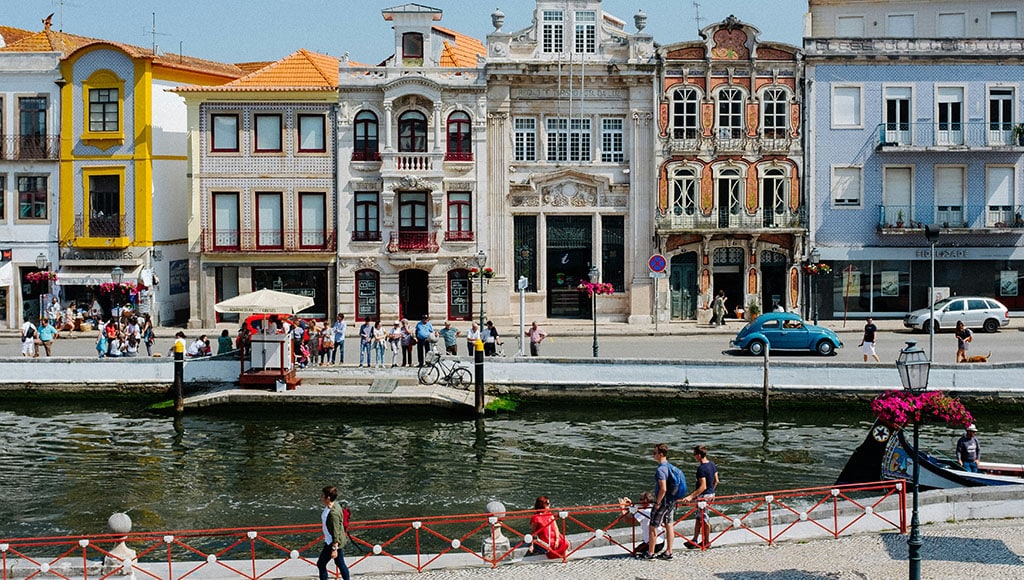How’s 2024 going for you? Its first month is suddenly behind us, clearing the way for a busy, likely feverish year, complete with Carnation Revolution celebrations, a revealing general election in March, and numerous elections ‘back home’ for many foreigners living in Portugal.
Add to this anticipatory atmosphere raging conflicts on a seemingly growing number of fronts, continued economic instability with accompanying post-pandemic unravelling, and we have those ‘interesting times’ Chinese sages prefer to avoid, which as a freedom and peace-seeking type, I find quite concerning.
Well, at least there’s the Euro 2024 football and Summer Olympics to look forward to for sports fans and anyone in need of a distraction, perhaps featuring new sports thanks to tensions in Paris, such as the 100-metre sprint from riot police, a long (or high) jump over piles of rotting manure, and quite a few Olympic flame tributes across the ring roads and motorways of the French capital.
Do you remember when, as a child, the Olympics seemed to last all year and when they did, there wasn’t much else on or in the news? Well, it looks like those days are a distant memory, as rolling news agendas are packed with every kind of horror from every corner of the world, all day long.
At times like these, and understandably, our collective attention tends to focus on the here and now with an emphasis on survival and getting through these various challenges. Longer-term planning can get put on the backburner along with our hopes and dreams, which may account for that metaphorical whiff of overcooking and burning in the distance, as hotter issues flambé on the front hob of human affairs.
We’ve heard before that ‘without a vision, the people perish’, so permit me to lure you away from the urgent demands on your attention and ask you to spare thought for what lies beyond the rowdy here and now, such that we can envisage a more peaceful and humane future. If we don’t ‘blue sky’ a preferred future, we’ll end up with more of the same – this ‘firefighting in the dark’ – as it certainly occurs to me.
First, some predictions for context, and to acclimatise ourselves to the likely backdrop of this decade, the stage setting for humanity’s next acts and scenes, in which we presumably anticipate or at least hope for a little more comedy than tragedy, or at least a more favourable balance between the two?
The ‘Portugal 2030’ initiative is putting into practice the Partnership Agreement between Portugal and the European Commission “to apply €23 billion of European funds to projects that stimulate and develop the Portuguese economy, between 2021 and 2027”, promising, among other things, a “smarter” and “more connected” Portugal, bringing its citizens “supporting development strategies at local level, promoting social and territorial cohesion, and supporting sustainable urban development, based on the concept of interconnected networks, centred on people’s needs.”
Predictably, it proposes a “Greener Portugal” too, “geared towards the green transition, accompanying the climate emergency and incorporating the goals of decarbonisation, energy efficiency and strengthening of renewable energy, and supporting innovation, the circular economy and sustainable mobility.” And notwithstanding “that the transition to a sustainable and carbon-neutral economy is just.”

Photo: Olivier Chatel/Unsplash
Within its “Social Portugal” section, Portugal 2030 supports “the improvement of the population’s qualifications, equal access to health care, promoting quality employment and social inclusion, following the priorities set in the European Pillar of Social Rights.”
Picking up and running with these ideas, professional services behemoth Deloitte sees the opportunity to put “people first” with “a better demographic balance, greater inclusion, less inequality.”
“Putting people at the center of concerns and promoting a more inclusive and less unequal society, while also responding to the challenges of demographic transition and ageing,” they add, underlining the mission “to recover the economy and protect the employment, and to make the next decade a period of recovery and convergence of Portugal with the European Union, ensuring greater social and territorial resilience and cohesion.”
Who could disagree with any of the above, albeit with a slight sense of corporate-speak overwhelment?
Portugal’s very own Gulbenkian foundation, created in 1956 from the legacy of the oil magnate from which it takes its name, and “aims to improve people’s lives through art, charity, science and education”, predicts that “this decade is expected to be turbulent. We will not be able to count on the same growth factors or follow the public policy guidelines that, so far, have failed to take Portugal out of a long period of near stagnation.”
“This decade is also expected to be a transition period,” it suggests, “marked by the shock between the past and the future. On one hand, we will experience limitations to the growth of existing solutions and activities. On the other hand, we will pass through difficulties arising from a new wave of growth, based on a new technical-economic system and new geoeconomics and geopolitics that should only stabilise by 2050.”
And inside politics and parliament, albeit when he was Prime Minister, António Costa had this to say about Portugal when taking ‘a trip to the country’s future’: “We will face difficulties. We will face obstacles, it’s up to all of us to overcome them.”
There, addressing the delegates of the 2023 ‘Mobilising Agendas’ conference, involving over 900 organisations and 112 research centres, with estimated investment of €7.7 billion by 2026, he urged them to: “transform the production chains, set them up to be more competitive, gain efficiency in each link and compete on the international market”.
And though his words may have inherited a hollower ring since, can we – without cynicism – not agree that such inclination would of course be fruitful, if suitably nurtured and unleashed?
Let me add more context for this possible Portuguese future, saying that from my new-comer perspective, and at the risk of upsetting ambitious Portuguese people, I assert that Portugal has been very fortunate to be tucked into the slipstream of other, bigger countries’ forward motion and larger players, especially in the European Union.
Although we invariably and ultimately suffer the effects that all seem to face to some extent in our globalised planetary shenanigans, for example the 2008 financial crash or Covid pandemic, we seem to do so somewhat later here and can prepare accordingly for the inevitable, if sufficiently aware and motivated.
Not only does Portugal have this time lag in which to prepare itself, rehearse and adapt to what it can see landing on everyone else’s laps, it still – praise be – has a social structure that is positive and useful when it comes to people working together to face external adversity, 2020 being a notable example.
In the scenarios I’ve laid out heretofore from the great and good, there are the manifestos, visions and prescriptions for 2030 and beyond, where we currently have our noses to the rolling news grindstones of conflict, tension and uncertainty.
Should we roughly agree that what they have in mind for us are indeed useful landmarks upon which to set our sights, I put it to you that there are two ways that Portugal can get to such scenarios, whether they turn out to be political posturing or are genuine goals for a healthy and prosperous society.
One way to a better future is to allow and expect politicians, nationally and at large over at the EU, to take us there.
The other is that we ourselves take greater responsibility and control for achieving those results and desirable outcomes, for a ‘world that works’, as Buckminster Fuller put it.
“Make the world work, for 100% of humanity, in the shortest possible time, through spontaneous cooperation, without ecological offense or the disadvantage of anyone.” Buckminster Fuller
Given what we’re seeing at the moment, with governmental preferences for conflict and control, rather than peace and freedom, it looks to me that those in that role of leadership (or lack of it) are seeing to a wholesale and undermining destruction, possibly self-destruction, of their mandate whilst poisoning and disabling the very institutions that might deliver the saner and healthier futures they speak of so brilliantly, pre-election.
When, for whatever reasons, a governing class – anywhere in the world – resorts only to the tools of conflict and control, every societal problem will be seen as a nail, whose only prospect is to be hammered.
Thank goodness then for Portugal’s strength, albeit for now at least, at grass roots and community level and some semblance of local accountability and feedback in local government. For the outcomes that the sanest among us might long for, I say let’s treasure, preserve and build upon the power of locality and community, as well as our own collective strength as neighbours.
Or do we continue to wait for the government, up or over there, to do it? Which seems to me an increasingly vain hope, not unlike the long wait for a saviour, Santa or the Easter Bunny?
Carl Munson is host of the Good Morning Portugal! show every weekday on YouTube and creator of www.learnaboutportugal.com, where you can learn something new about Portugal every day!
















